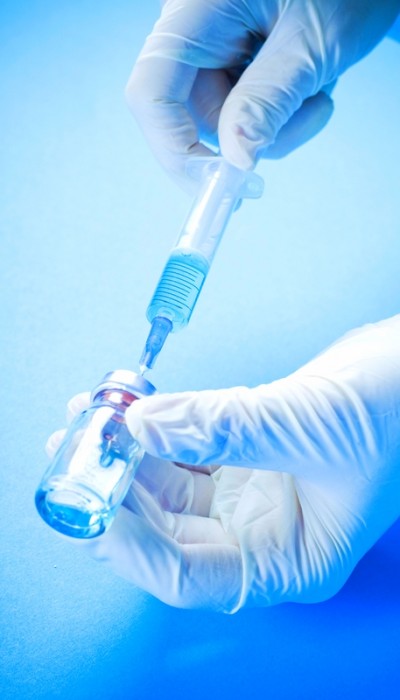Pet Vaccinations
PET VACCINATIONS RECOMMENDED
There are as many vaccination schedules as there are veterinarians in the country. Most stick to pet vaccinations every 3-4 week interval for puppies or kittens up to 18 weeks but what about healthy adult dogs and cats? There is controversy on this subject in the veterinary community but I have tried to use basic medical common sense when making decisions regarding pet vaccinations.
First of all. Do I want to vaccinate a little Maltese dog, that sits on a sofa all day, for leptospirosisLeptospirosis is caused by an infectious organism that is usually passed in dog urine and hence contaminates water supplies in the environment. The disease causes general signs of lethargy, fever, anorexia and later, signs of kidney and or liver failure.? No. Do I want to vaccinate a hunting or water dog like a retriever or spaniel? Heavens yes! Those animals are at a much higher risk of contracting leptospirosis than a tiny dog sitting on a couch or owner’s lap all day. Again, medical common sense.
What interval should healthy dogs be vaccinated for Distemper and Parvo plus other secondary vaccine components? The answer is all over the map. I administer pet vaccinations to healthy dogs and cats every year. Yes, you can do vaccine titersSome veterinarians and owners do not want to give vaccines annually and want titers done. The veterinarian draws blood, sends it to the lab and the lab gives the veterinarian antibody titers or levels for XYZ vaccine component. They can be useful to check a pet that has not been vaccinated for years or those with a compromised immune system but they can be expensive to perform. but they do not give you the whole picture of what is going on. It tells you nothing about the animal’s cellular responseThere are two ways infections are fought; humoral (antibody) or cellular. The latter is just as important as the former. Think of special cells in the body that act like little PAC MAN machines going around gobbling up the bad guys. That is what happens. Specialized cells like: neutrophils, macrophages and others are some of the vital components of the cellular response. so take titer results (except if doing rabies titers for other purposes) with a grain of salt.
Another important reason why I administer pet vaccinations annually is that I have diagnosed a myriad of conditions that would never have been presented if not for sending out annual reminder cards. After giving a physical and asking questions I have diagnosed: severe periodontal disease, diabetes mellitus and various tumors such as mammary masses. I have also picked up basic stuff like ear infections, urinary tract infections and skin issues. The point is, by taking your pet for annual pet vaccinations, the veterinarian can pick up things that you have missed. This is good medicine.
Rabies vaccination in all states is the law. This is something you have no say over. To get dog tags or registration in your area, you must show proof of a current rabies certificate signed by a licensed veterinarian.
WHAT ABOUT VACCINATING CHRONICALLY ILL ANIMALS?
I am very careful about pet vaccinations that I choose when dealing with chronically ill animals. Dogs and cats with immune system problems are one group. In the dog, diseases such as platelet and red blood cell issues, lymphomas, adrenal disease are all good examples of diseases that effect the immune system. In the cat, diseases such as feline leukemia and feline infectious anemia effect the immune system.
I look at each animal, case by case, to decide which (if any) vaccines should be utilized. If it is an upper middle aged to senior dog that stays inside all day, am I going to vaccinate for distemper and parvovirus? Probably not. Rabies? Probably yes but I usually do rabies titers on these animals to check one component of immunity which is antibody levels.
WHAT ABOUT OLD YET HEALTHY DOGS AND CATS?
I will usually go ahead and administer pet vaccinations to healthy dogs and cats. If the owner wants to do it every other year, that is fine. The point here is that vaccinations are important in older animals, as all vaccines give an immunological workout to the immune system. The body has to work to produce a vaccine response and that work keeps the immune system in tip top shape; particularly in that older dog whose immune system may be faltering with age.
VACCINE SIDE EFFECTS
Most vaccines in adult dogs and cats rarely cause any discomfort. That is what happens often in young animals. Adult dogs that have had a history of vaccine allergies have already been given a dose of Benedryl® several hours before appointment time.
What does happen periodically is the development of granulomas over the injection site. These can vary from the size of an acorn to large softball sized growths. A granuloma is basically scar tissue and is an inflammatory response to a vaccine component. They usually appear within 2-4 days after the vaccine had been administered. People get alarmed but they all disappear within 3 or so weeks.
Knock on wood but in my 30 plus year career I have yet to see feline sarcomas develop from pet vaccinations in cats. I have vaccinated tons of cats over the years. 50% of my Ohio practice case load were felines. They may be out there but I have yet to see one.
BOTTOM LINE ON PET VACCINATIONS
Pet vaccinations are an extremely important thing to do to promote adult health. Yes, there are risks from any vaccination but we have to take risks in life, don’t we? Vaccines are, overall, extremely safe and help to protect our pets from diseases that could kill them. The minute you stop vaccinating pets or people, infectious diseases will pounce like a lion.


